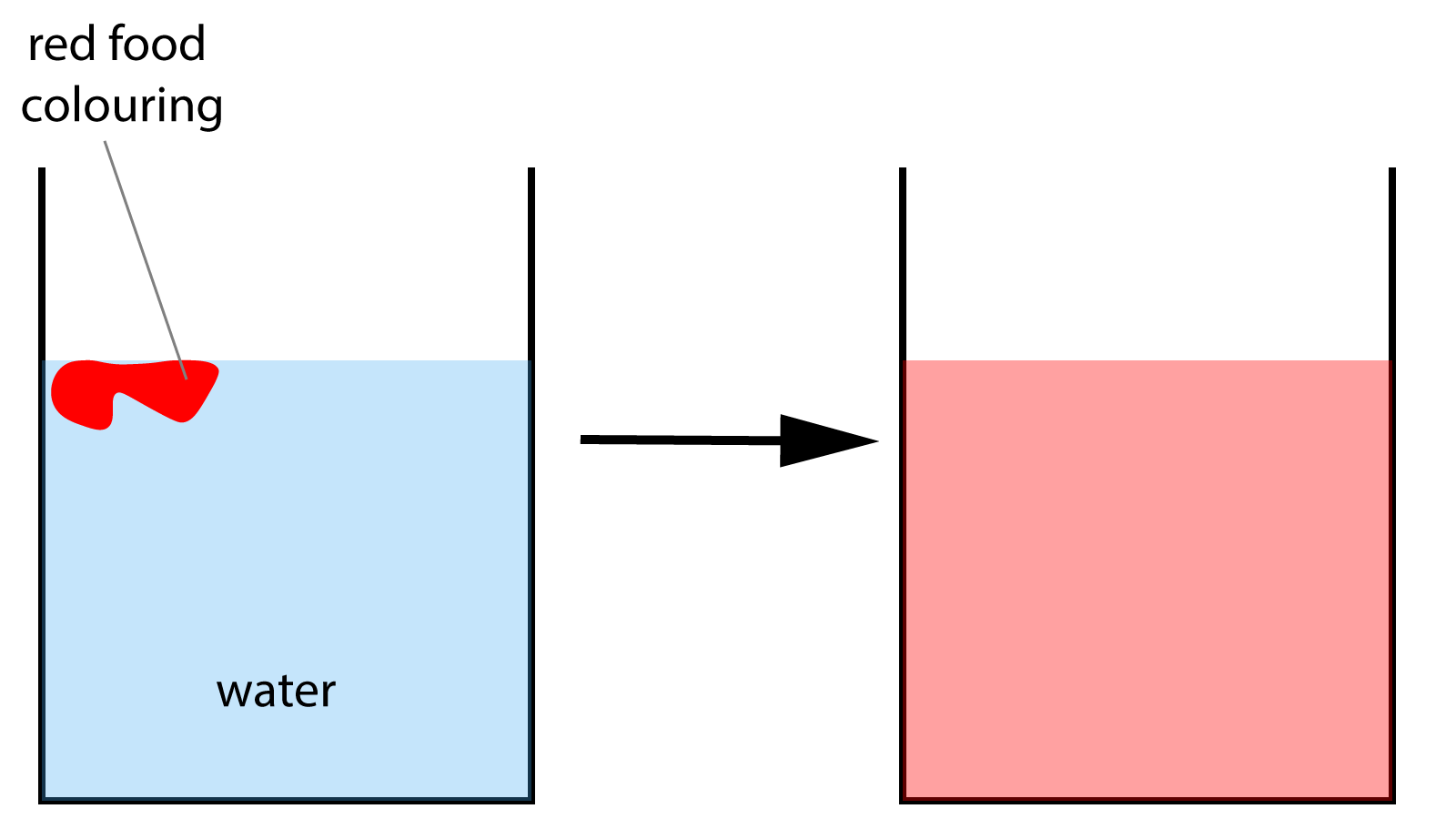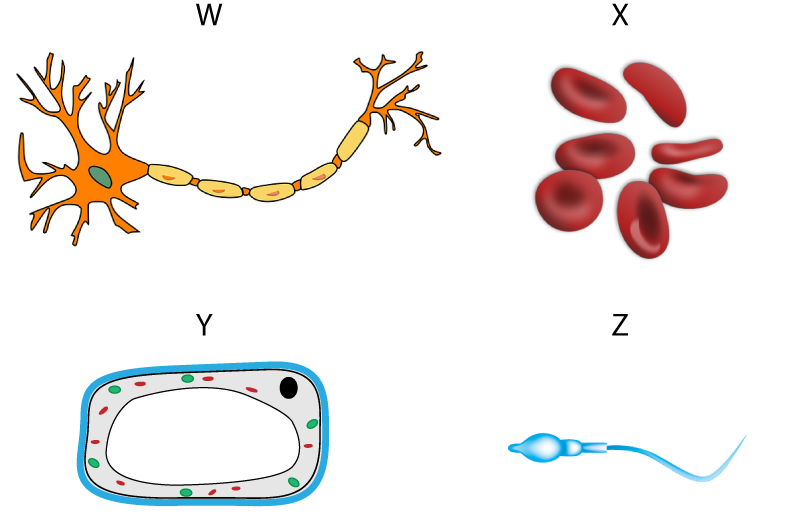Q11 - 13: These questions are about cells and structures:
Cells are the basic building blocks of all living things.
|
11. Which of the following lists gives structures in order of size, from smallest to largest?
- A. cells, organs, tissues, organism.
- B. cells, organism, organs, tissues.
- C. cells, organs, organism, tissues.
- D. cells, tissues, organs, organism.
|
|
12. The digestive system is an example of one body system. Where would 'systems' fit in the list above, from smallest to largest?
- A. between cells and tissues
- B. between organs and organism
- C. between tissues and organs
- D. between tissues and organism
|
|
13. Which of these is an example of a 'tissue' made of similar cells?
- A. stomach
- B. liver
- C. muscle
- D. circulatory system
|
|
14. Food colouring left in a beaker of water will slowly spread through the water as shown here.
What is the name given to this process? |

|
- A. digestion
- B. diffusion
- C. diffraction
- D. evaporation
|
|
15. This process is important in cells, as it allows...
- A. ..colouring to enter cells
- B. ..substances like oxygen to move through and between cells
- C. ..cells to move around within tissues
- D. ..water to flow through the gaps between cells
|
|
16-20. The dagram here shows 4 specialist cells, with structures that allow them to perform specific jobs: |

Database Center for Life Science | CC 3.0
Jessica Polka | CC 4.0
|
16. What is cell W?
- A. red blood cell
- B. nerve cell
- C. sperm cell
- D. leaf cell
|
|
17. What is cell X?
- A. red blood cell
- B. nerve cell
- C. sperm cell
- D. leaf cell
|
|
18. What is cell Y?
- A. red blood cell
- B. nerve cell
- C. sperm cell
- D. leaf cell
|
|
19. What is cell Z?
- A. red blood cell
- B. nerve cell
- C. sperm cell
- D. leaf cell
|
|
20. Which of these statements describes a specialist feature of a red blood cell?
- A. It has a long tail allowing it to 'swim' through a liquid
- B. It has a long structure allowing it to pass messages over long distances
- C. It has chloroplasts where photosynthesis occurs
- D. It is small and flexible allowing it to pass through narrow spaces.
|
|
|
